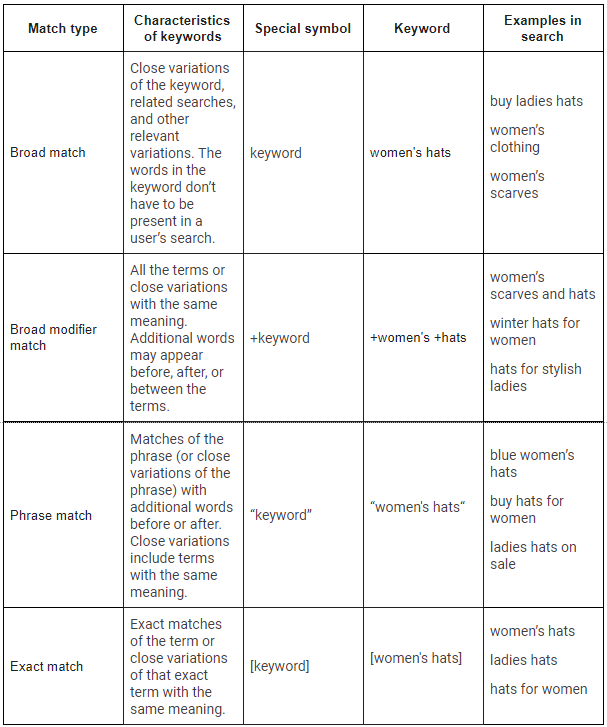Broad match type
Keyword matching options are parameters that you set for your keywords so that your ads appear on searches according to your needs. These settings determine which search queries trigger your ad. We distinguish between 4 types: broad match, exact match, phrase match, and broad match modifier.
What is broad match?
Broad match is the most flexible solution of choice if you are targeting a wider audience. Thanks to this, you will attract a larger number of users and at the same time potential customers to your website. Your ads may also appear to users who have not entered a keyword that is exactly the same as the one they entered.
For example, grammatical errors, derived words, synonyms, singular and plural words, related searches, and more. This type of match may also take into account the customer’s recent search activity.
How to use broad match?
Setting broad keyword matches will save you time by leaving most of your work to algorithms. However, you run the risk of showing your ad on less relevant search queries.
The benefit is to create a list of all the keywords that a potential customer could use when searching. To limit the reach of your search to relevant queries, you need to implement negative keywords.
Examples of the use of broad match
If your keyword is “men’s clothing” your ad may appear if someone searches for buy men’s clothing, men’s clothing, clothing for men, men’s, discounted men’s clothing, etc.
Google cites the keyword “low-carb diet plan” as an example. Ads can also show broadly when searching for carbohydrate-free foods, non-carbohydrate foods, low-calorie diets, low-calorie recipes, Mediterranean diets, and more.
Comparison of match types in the table (according to Google)


Get your product advertising done with BlueWinston
Every single solution and feature is excellent, but all together bring you a powerful product advertising platform for achieving great results and huge time & cost savings!
Go to homepage

 Experience Microsoft Product Ads for
Experience Microsoft Product Ads for  free until January 1, 2026 - absolutely no cost!
free until January 1, 2026 - absolutely no cost!


